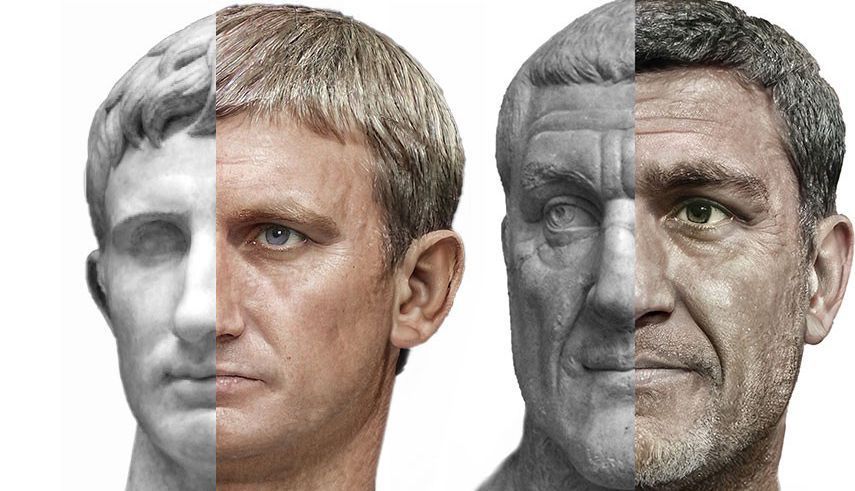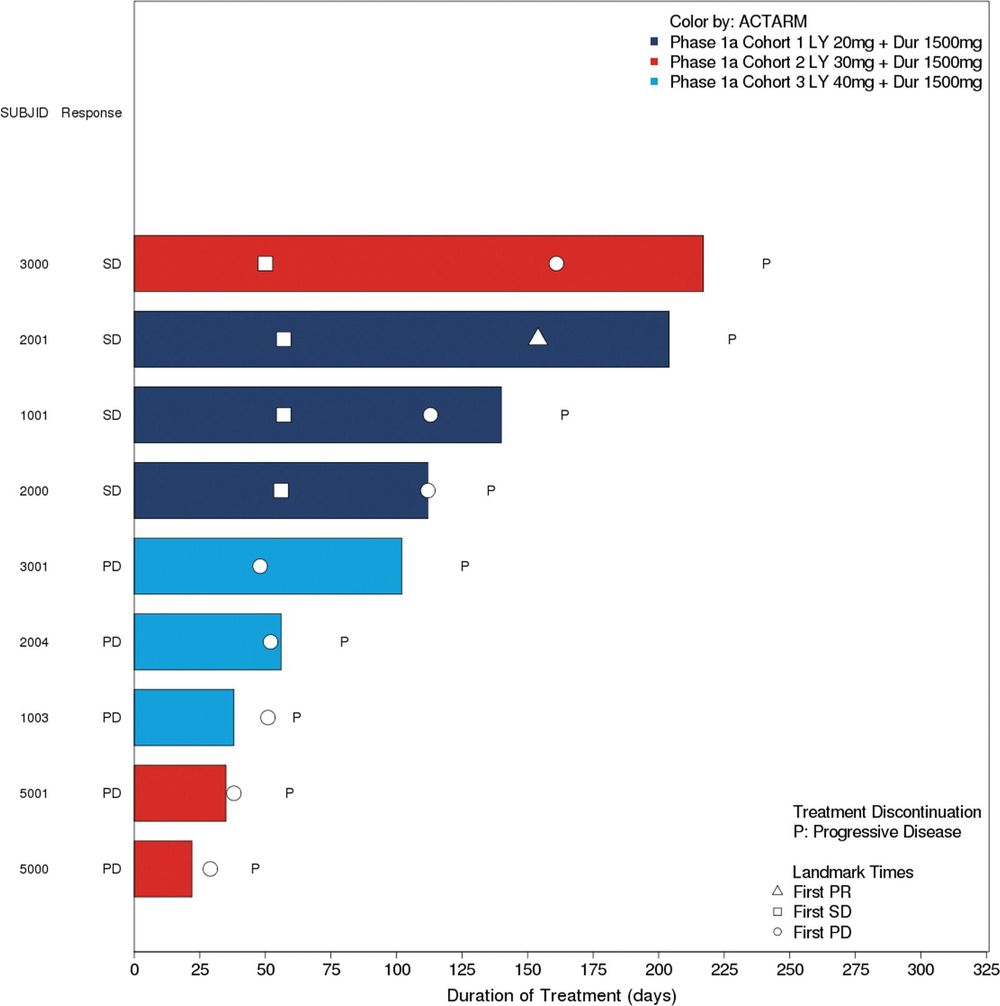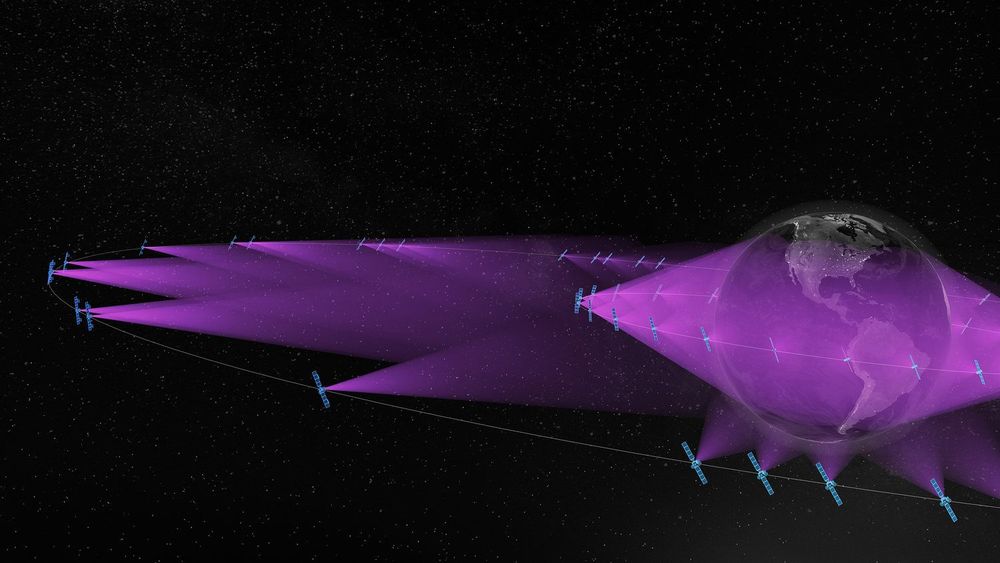This ginormous device turns wave energy into electricity.
Get the latest international news and world events from around the world.



NASA’s Artemis Mission looks to help better agriculture
Innovation is key for developing the future of agriculture and sometimes it comes from unlikely places.
The NASA Artemis Mission is working to develop space exploration, but here on Earth, they are partnering with the University of California Berkeley to use Land Satellite Seven to benefit agriculture.
According to NASA Administrator Jim Bridenstine, “We can use that data from space and combine it with weather stations from Earth, and we can get very precise evapotranspiration measurements, down to a quarter of an acre. What that means is we can provide farmers with very specific irrigation plans.”
The technology is still in the testing phase but could one day make farming a little easier. “Imagine being a farmer and going out into your field with your iPhone, looking at it and having an app on there that tells you exactly what your irrigation needs to be for this quarter of an acre for this type of soil and this type of crop,” Bridenstine states.
NASA looks to partner with private businesses to bring new technologies to the market. “The challenge is land sat only has a revisit of two weeks,” he notes. “Weather changes a lot in two weeks; so, I think there is a future where a commercial company could create lots of satellites that could provide this data to farmers.”
Another project on the International Space Station, called Eco-Stress, measures heat stress in plants using infrared technology. Both projects hope to answer a key question: “Can we use our earth science capabilities to feed more of the world and save water in the central valley of California, and the answer is— yes we can.”


Safety and Pharmacokinetics of CXCR4 Peptide Antagonist, LY2510924, in Combination with Durvalumab in Advanced Refractory Solid Tumors
Purpose: This was an open-label phase 1a study assessing the maximum tolerated dose (MTD), safety, and tolerability of CXCR4 peptide antagonist, LY2510924, administered in combination with durvalumab in patients with advanced refractory solid tumors.
Methods: Patients received LY2510924 at 20, 30, or 40 mg subcutaneous (SC) once daily in combination with durvalumab at 1500 mg intravenously (IV) on day 1 of each 28-day cycle. The primary objective was to assess the MTD and safety of LY2510924 SC daily in combination with durvalumab in patients with advanced (metastatic and/or unresectable) solid tumors. Secondary objectives included pharmacokinetics (PK) and the antitumor activity of LY2510924 in combination with durvalumab. Exploratory objectives were biomarker analysis, including pharmacodynamic markers, relevant to LY2510924 and durvalumab, including immune functioning, drug targets, cancer-related pathways, and the disease state.
Results: Nine patients (three each at 20, 30, and 40 mg) were enrolled in the study (eight patients with pancreatic cancer and one patient with rectal cancer). The majority of patients completed one or two cycles (100.0% ≥ 1 cycle; 88.9% ≥ 2 cycles) of LY2510924 and durvalumab. No dose limiting toxicities were reported. Most common (10%) treatment-emergent adverse events were injection-site reaction (44.4%), fatigue (33.3%), and increased white blood cell count (33.3%). PK parameters for combination were similar to those reported in previous studies when given as monotherapy. Best overall response of stable disease was observed in four (44.4%) patients and one patient had unconfirmed partial response.

SES taps SpaceX for two additional Falcon 9 launches
Fleet operator SES on Aug. 20 said it selected SpaceX to launch four recently ordered O3b mPower broadband satellites.
SES’s four-satellite expansion order, announced Aug. 7, further increased its launch needs.
SES has now grouped the satellites into trios for the first three Falcon 9 launches, scheduled for the third quarter of 2021, the first quarter of 2022, and the second half of 2022. The last two satellites are projected to launch in the second half of 2024. Each mission will take place from Cape Canaveral, Florida.
The O3b mPower constellation is designed as a multi-terabit global network capable of aiming gigabits of Ka-band capacity at customers in aviation, government, energy and other sectors. The constellation builds off of SES’s current O3b fleet of 20 satellites built by Thales Alenia Space.
WASHINGTON — Fleet operator SES on Aug. 20 said it selected SpaceX to launch four recently ordered O3b mPower broadband satellites.
The agreement means SpaceX will launch all 11 of SES’s O3b mPower satellites to medium Earth orbit across four Falcon 9 launches. Boeing is building all 11 mPower satellites.

Astronomers Mystified by Eerie Phenomenon on Mars: Ultraviolet “Nightglow” Spreads Across the Planet’s Sky Every Night
This is an image of the ultraviolet “nightglow” in the Martian atmosphere over the south pole. Green and white false colors represent the intensity of ultraviolet light, with white being the brightest. The nightglow was measured at about 70 kilometers (approximately 40 miles) altitude by the Imaging UltraViolet Spectrograph instrument on NASA’s MAVEN spacecraft. A simulated view of the Mars globe is added digitally for context, and the faint white area in the center of the image is the polar ice cap. The image shows an unexpectedly bright glowing spiral in Mars’ nightside atmosphere. The cause of the spiral pattern is unknown. Credit: NASA/MAVEN/Goddard Space Flight Center/CU/LASP
Every night on Mars, when the sun sets and temperatures fall to minus 80 degrees Fahrenheit and below, an eerie phenomenon spreads across much of the planet’s sky: a soft glow created by chemical reactions occurring tens of miles above the surface.
An astronaut standing on Mars couldn’t see this “nightglow”—it shows up only as ultraviolet light. But it may one day help scientists to better predict the churn of Mars’ surprisingly complex atmosphere.
NASA’s New $10 Billion Telescope to Study Quasars and Their Host Galaxies in Three Dimensions
Supermassive black holes, which likely reside at the centers of virtually all galaxies, are unimaginably dense, compact regions of space from which nothing — not even light — can escape. As such a black hole, weighing in at millions or billions of times the mass of the Sun, devours material, it is surrounded by a swirling disk of gas. When gas from this disk falls towards the black hole, it releases a tremendous amount of energy. This energy creates a brilliant and powerful galactic core called a quasar, whose light can greatly outshine its host galaxy.
Astronomers widely believe that the energy from quasars is responsible for limiting the growth of massive galaxies. Shortly after the launch of NASA ’s James Webb Space Telescope, scientists plan to study the effect of three carefully selected quasars on their host galaxies in a program called Q3D.
A supermassive black hole is very small compared to its host galaxy — it’s the equivalent of a penny in relation to the size of the entire Moon. Still, supermassive black holes have an immense influence on the galaxies they inhabit.

What does your voice say about you?
Your accent can nod to where you come from; the pace of your speech can reveal your emotional state; your voiceprint can be used to identify you.
Linguists, companies and governments are now parsing our voices for these details, using them as biometric tools to uncover more and more information about us.
While a lot of this information is used to make our lives easier, it has also been used to controversial and worrying effect.